Undergoing Gastric Bypass Surgery is a life-changing decision for individuals struggling with severe obesity and related health issues. While the procedure can lead to dramatic weight loss and improved overall health, it requires long-term commitment and careful post-operative care. Understanding what happens after surgery is crucial for a successful outcome. This guide covers everything you need to know to navigate recovery, manage side effects, and make sustainable lifestyle changes.
How does the recovery process unfold after gastric bypass surgery?
Recovery after Gastric Bypass Surgery occurs in several phases. The first few days involve hospital monitoring, followed by several weeks of gradual healing at home. Patients are often encouraged to start moving shortly after surgery to prevent blood clots and aid digestion.
Pain, fatigue, and bloating are common during the initial days, but these symptoms typically improve with time. By the third or fourth week, most individuals feel more energetic and begin adapting to new eating habits. Full internal healing can take up to six months.
Every patient's recovery timeline is different and may depend on pre-surgery health and adherence to guidelines. Staying well-rested and hydrated enhances the body's healing capabilities. It's important to document your progress and share updates during follow-up appointments. Recovery is not just physical but emotional as well, so holistic self-care is encouraged.
If you're exploring less invasive options, gastric balloon in Turkey offers a temporary alternative.
Key Recovery Milestones:
- Day 1–3: Hospital stay and mobility encouragement
- Week 1–2: Liquid diet and rest
- Week 3–4: Soft foods introduced
- Month 2–6: Adjusting to normal activity levels and solid foods
Tips for maintaining long-term weight loss success
Long-term weight loss after Gastric Bypass Surgery depends heavily on consistency and lifestyle. Many patients regain weight due to reverting to old habits. To prevent this, follow structured routines and stay accountable.
Key Habits for Success:
- Eat meals at regular intervals
- Keep a food and mood journal
- Join a support group (online or local)
- Track your physical activity and weight
Staying motivated and connected to others going through similar journeys can make a big difference. Celebrate non-scale victories like improved mobility, sleep, and energy levels.
How to prevent complications such as dumping syndrome
Dumping syndrome is a common side effect of Gastric Bypass Surgery, occurring when food moves too quickly from the stomach to the small intestine. Symptoms include nausea, dizziness, cramps, and diarrhea.
Prevention Techniques:
- Avoid sugary and high-fat foods
- Eat slowly and chew thoroughly
- Don’t drink liquids with meals
- Choose high-protein, low-carb foods
Keeping a symptom diary can help identify trigger foods. Regular follow-ups with a dietitian can fine-tune your meal planning.
The importance of regular follow-up visits after surgery
Scheduled check-ins with your surgeon, nutritionist, and primary care provider are vital after Gastric Bypass Surgery. These visits help monitor weight loss, manage nutrition, and detect early signs of complications.
Typical Follow-Up Timeline:
- 1–2 weeks post-op: wound and fluid check
- 1 month: diet and weight review
- 3–6 months: vitamin and lab work
- Annual visits: lifelong monitoring
Missing appointments can delay the identification of deficiencies or surgical issues. Keep a record of questions to ask during each visit to maximize value.
How soon can you resume physical activities and exercise?
Physical activity is encouraged soon after Gastric Bypass Surgery, starting with light walking. This aids circulation, prevents blood clots, and supports metabolism. Strenuous activities, however, should be avoided until cleared by your doctor.
General Timeline:
- Days 1–7: short indoor walks
- Week 2–3: increase pace and frequency Tips for maintaining long-term weight loss success Long-term weight loss after Gastric Bypass Surgery depends heavily on consistency and lifestyle. Many patients regain weight due to reverting to old habits. To prevent this, follow structured routines and stay accountable.
Key Habits for Success:
- Eat meals at regular intervals
- Keep a food and mood journal
- Join a support group (online or local)
- Track your physical activity and weight Staying motivated and connected to others going through similar journeys can make a big difference. Celebrate non-scale victories like improved mobility, sleep, and energy levels.
The importance of regular follow-up visits after surgery
Scheduled check-ins with your surgeon, nutritionist, and primary care provider are vital after Gastric Bypass Surgery. These visits help monitor weight loss, manage nutrition, and detect early signs of complications.
Typical Follow-Up Timeline:
-
- 1–2 weeks post-op: wound and fluid check
- 1 month: diet and weight review
- 3–6 months: vitamin and lab work
- Annual visits: lifelong monitoring Missing appointments can delay the identification of deficiencies or surgical issues. Keep a record of questions to ask during each visit to maximize value.
- Month 2–3: begin light strength training and yoga
- Month 4+: full exercise routines (cardio, resistance, swimming)
- Listen to your body and avoid high-impact movements that strain your abdomen. Staying active not only promotes weight loss but also improves mood and energy.
We’re ready to answer your questions
Nutritional supplements and vitamins required post-surgery
Because Gastric Bypass Surgery alters nutrient absorption, lifelong supplementation is non-negotiable. Skipping vitamins can lead to serious deficiencies like anemia, osteoporosis, or neurological issues.
Essential Supplements:
| Supplement | Recommended Dosage | Purpose |
|---|---|---|
| Multivitamin | Once daily (bariatric formula) | General nutrient support |
| Calcium with D | 1200–1500 mg/day, split doses | Bone health |
| Iron | 45–60 mg/day | Prevent anemia |
| Vitamin B12 | Monthly injection or sublingual | Nerve and blood cell health |
| Vitamin D3 | As per lab results | Calcium absorption and immunity |
Blood work every 3–6 months ensures proper levels. Choose bariatric-specific supplements for optimal absorption.
Deficiencies may not show symptoms immediately but can become serious over time. Keep supplements in a visible place as a daily reminder. Work closely with your care team to fine-tune dosages based on lab results. Don't substitute over-the-counter options unless advised by your provider.
Mental health and emotional adjustments after weight loss surgery
Emotional changes after Gastric Bypass Surgery are common. Rapid body changes, altered relationships, and identity shifts can trigger mood swings, anxiety, or even depression. Addressing these challenges is essential.
Support Strategies:
- Seek counseling or therapy
- Join bariatric support groups
- Practice mindfulness and self-compassion
- Communicate openly with loved ones
Mental well-being is as important as physical recovery. Don’t hesitate to ask for help or discuss emotional struggles during medical follow-ups.
Identifying and managing potential surgical complications
Though uncommon, complications like infections, hernias, ulcers, or bowel obstructions can occur after Gastric Bypass Surgery. Recognizing symptoms early improves treatment outcomes.
Warning Signs to Watch For:
- Persistent abdominal pain
- High fever or chills
- Vomiting or severe nausea
- Bleeding or pus from incision site
Contact your surgeon immediately if any of these symptoms appear. Prompt action can prevent more serious outcomes and protect your surgical success.
Most patients recover enough to return to normal routines in 4–6 weeks, but full internal healing takes several months.
Start with clear liquids, then progress to full liquids, pureed foods, and soft foods over the first 6 weeks.Many patients lose 60–80% of their excess weight within the first 12–18 months.Dumping syndrome is when food moves too quickly through the digestive tract. Avoid sugary, high-fat foods and don’t drink with meals.Walking is encouraged immediately, while more intense workouts can resume 6–8 weeks post-op with your doctor’s approval.Yes. B12, iron, calcium, and vitamin D are the most common. Supplementation and lab monitoring are essential.Absolutely. Long-term success depends on portion control, healthy choices, and avoiding trigger foods.You’ll need regular visits in the first year, then annual monitoring for life.Reversal is rare and complex. It’s only considered for severe, unresolved issues.Stick to structured routines, exercise regularly, and stay accountable through support groups or health professionals.
Follow us on social media for updates, tips, and patient success stories:


